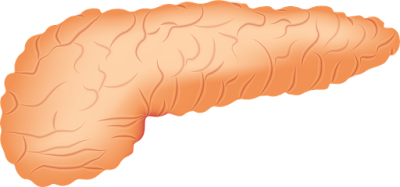Gastrointestinal bacteria
How to fight bacteria of the digestive system?
Human digestive system is not only the content of toxicity, mucous secretions and digestive organs, because naturally nested in it are also colonies of microorganisms - mainly bacteria that make up the system so enormous that many scientists boldly defines it as a separate "body in the body".
Microorganisms have chosen yourself as a residence primarily the small intestine, large intestine and colon. Most bacteria live in the large intestine, where they have the greatest activity.
Today we already have knowledge of their beneficial effect on our health and why should we care about them.
What do microorganisms?
Most important for our health is the unfolding of nutrients is not digestible for humans and synthesis of vitamins B, C and folic acid.
Particular importance to us that protect us against invasion of pathogenic bacteria.
Note! If we run out of them in the gastrointestinal tract, then it's settled microorganisms in the presence of which would have fatal consequences for health.
What spoils the harmony in the gut?
First of all it is a stress, prolonged use of antibiotics , radiation therapy or inflammations of the gastrointestinal tract.
These are just some reasons that can upset the balance prevailing in the gut , and when it comes to excessive growth of the bacterium Clostridium difficile , Klebsiella oxytoca , Salmonella spp and Candida albicans , then there are the characteristic symptoms such I :
- abdominal pain,
- intestinal cramps ,
- excessive gas,
- change in bowel habits ,
- changes in allergic
- fatigue and weakness,
- recurrent infections of the digestive system.
Disorders of this type of therapy involves the use of a proper diet and drugs which contain selected probiotic strains.
Dysbiosis ( abnormal changes in the microflora ), can be effectively cured, and much more serious problem is the state when the bacteria that foothold in our digestive tract, leak to the outside of his precinct.
Note - bacteria escaped from the gut
Enhanced, bowel surgery, as well as the weakening of the intestinal barrier. The consequence is generalized, life-threatening infections, and the effect of enteric bacteria entering the bloodstream may be sepsis (sepsis or systemic inflammatory response syndrome).
Note! This disease is considered severe condition and treated her in intensive care.
The main symptoms of sepsis include:
- increased body temperature, increased breathing, increased heart rate and changes in the number of leukocytes in the blood.
Treatment of this disease is to destroy the bacteria that caused the infection and therefore must be implemented in the shortest possible time from diagnosis of the disease, intensive antibiotic therapy. The mortality is estimated at 30%.
Keep the balance of the intestinal
It is about a balance between different strains of bacteria living in the digestive tract. The intestinal microflora remember, especially when oral antibiotics are used.


Comments
Post a Comment